Selling a vacant property can sometimes feel like an uphill struggle, like you’re trying to make an empty canvas appeal to art lovers. It’s challenging to create that ‘home sweet home’ aura without physical furniture and décor—especially when potential buyers can’t physically set foot in the place.
That’s where the tech magic of virtual staging swoops in! This game-changing technology uses 3D modeling wizardry to design captivating and visually tantalizing representations of properties, turning bare spaces into dream homes on screen.
Curious about how this digital innovation is transforming real estate sales? Let’s take a stroll down the info-lane together!
Key Takeaways
- Virtual staging is a technology that enhances real estate listings by digitally adding furniture and decor to empty spaces in photos or videos.
- This cost – effective tool allows potential buyers to visualize themselves living in the property, leading to increased buyer interest and higher offers.
- Virtual staging eliminates the need for physical staging, saving time and money for sellers.
- It provides a realistic visualization of the property’s potential, improving accessibility for remote buyers and enhancing their overall experience.
What is Virtual Staging for Real Estate?
 Virtual staging for real estate refers to the process of digitally enhancing property listings by adding virtual furniture, decor, and other elements to create an appealing visual representation of a space.
Virtual staging for real estate refers to the process of digitally enhancing property listings by adding virtual furniture, decor, and other elements to create an appealing visual representation of a space.
It utilizes advanced 3D modeling technology to transform vacant or empty properties into attractive and inviting spaces that potential buyers can envision themselves living in.
Definition
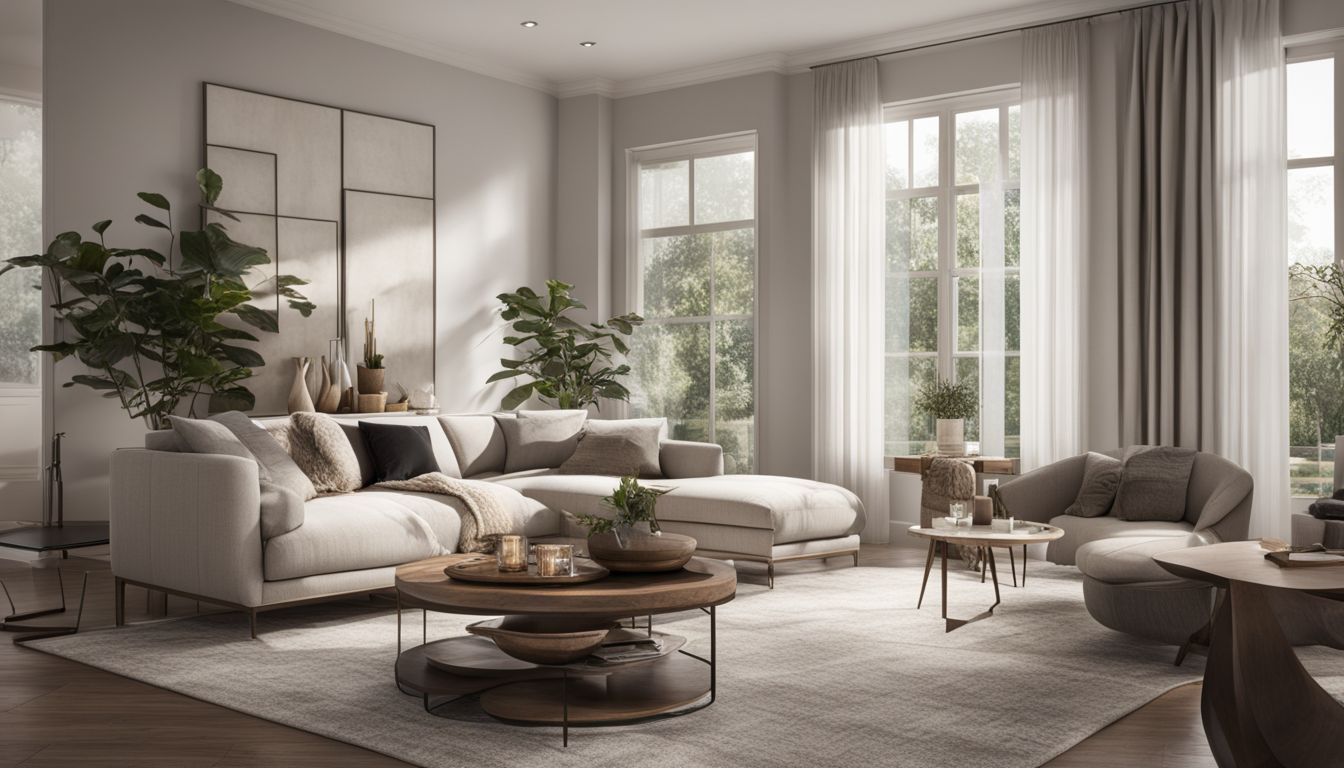
Virtual staging is a cool tool in real estate. It means adding things like sofas, tables, and rugs to pictures of empty rooms or homes. This is done on a computer with special software.
It makes rooms look cosy and inviting which can help sell the home faster. This kind of digital fixing-up is also known as online staging or digital furniture placement. The best part? It’s less costly than buying real furniture for every room!
Benefits
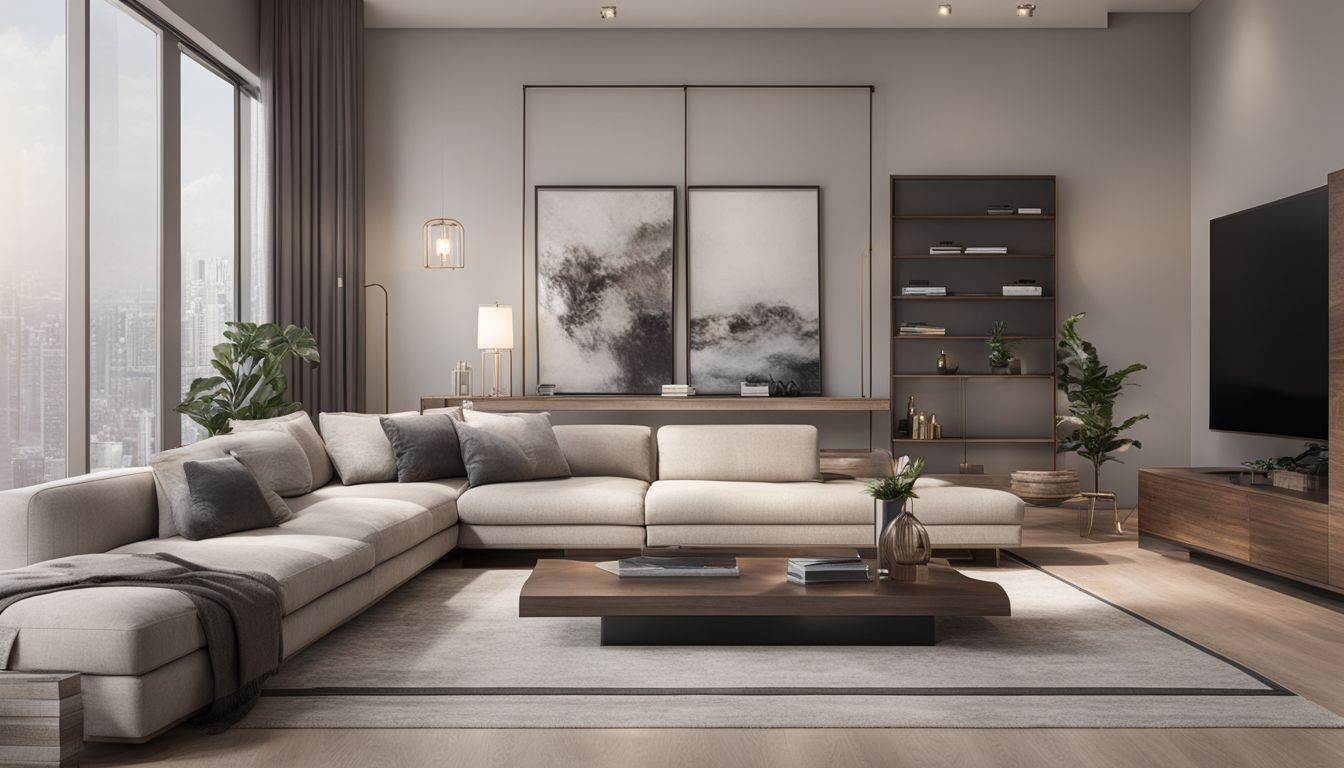
Virtual staging has many benefits for people in real estate. First, this technology gives a low-cost option compared to old ways of staging homes. You save lots of money and time not buying or renting furniture.
Application in 3D modeling
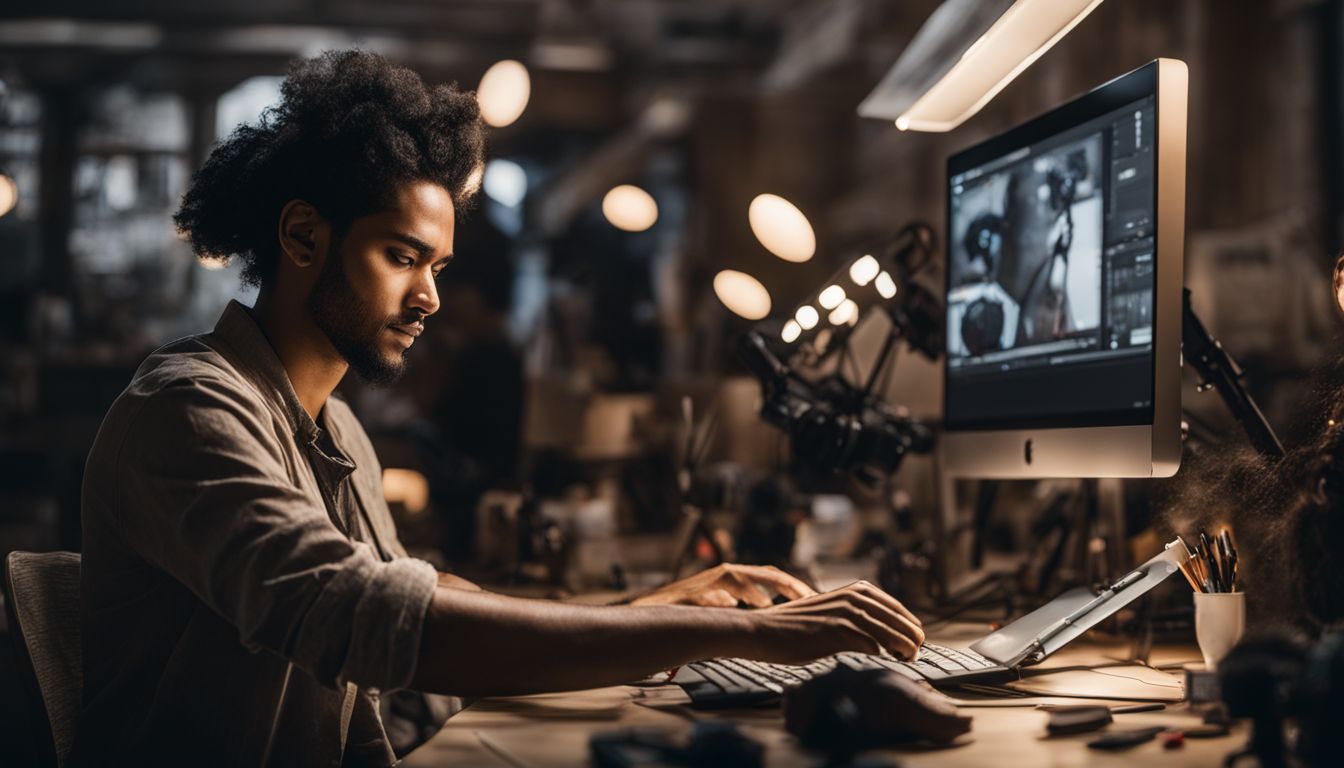 3D modeling is a key part of virtual staging. We put rooms into the computer. This makes 3D images that look real. Buyers can take a virtual tour of these homes. They can see furniture and other things in each room just like they would in a real home tour.
3D modeling is a key part of virtual staging. We put rooms into the computer. This makes 3D images that look real. Buyers can take a virtual tour of these homes. They can see furniture and other things in each room just like they would in a real home tour.
CGI rendering works with digital home staging to give this realistic feel to empty spaces. It even lets us see how different items fit into the space, such as couches, tables or beds.
I use special software to do this work on my computer. In the end, buyers get an immersive experience with realistic imagery which drives property sales up!
The Impact of Virtual Staging on Modern Real Estate Sales
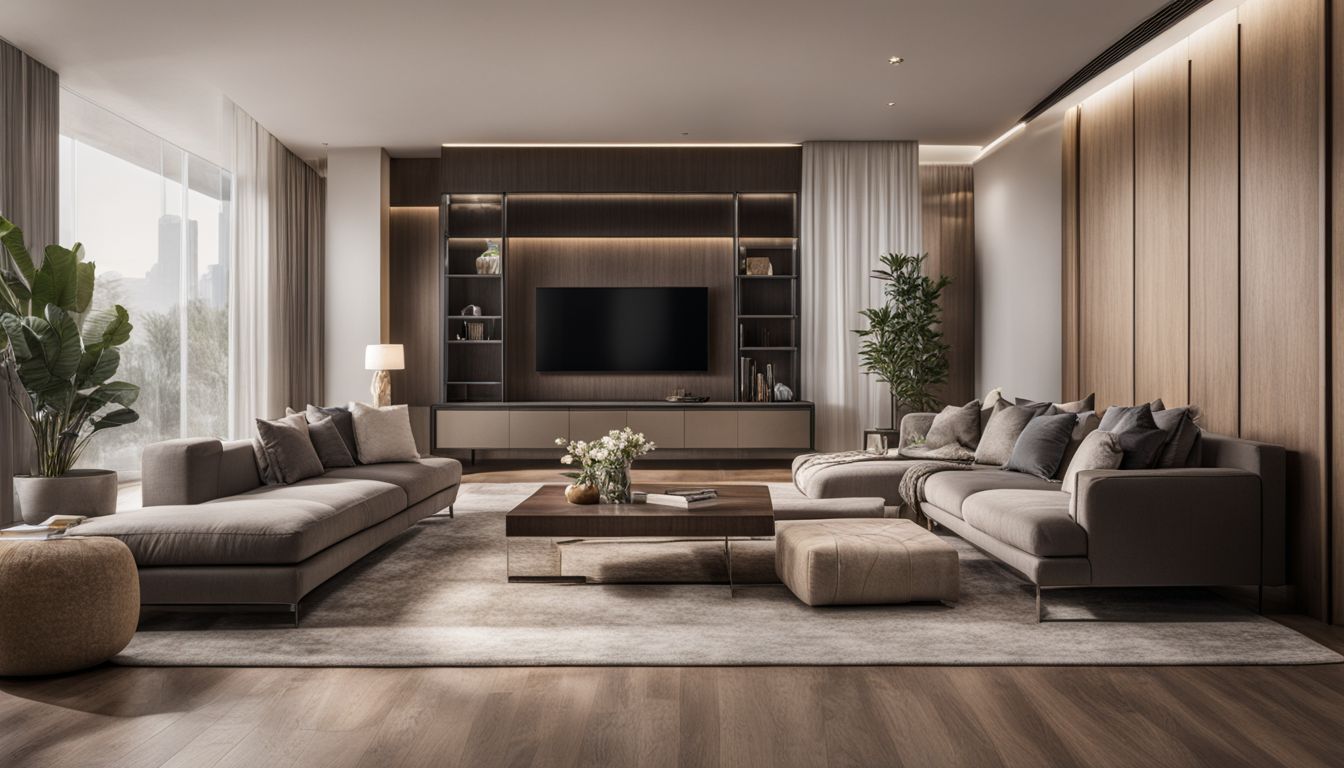
Virtual staging has had a significant impact on modern real estate sales. It has revolutionized how properties are marketed and sold, providing a cost-effective and flexible way to showcase a property’s potential.
According to a survey by the National Association of Realtors (NAR), virtual staging increases real estate prices and leads to increased sales. This technology-driven staging approach is becoming increasingly popular as it offers faster turnaround times compared to traditional physical staging while delivering similar results in attracting buyers and accelerating property sales.
With virtual staging, properties become more visually appealing to potential buyers, ultimately boosting sales and enhancing the overall buyer experience.
How Does Virtual Staging Work?

Virtual staging involves digitally enhancing images or videos of a property to showcase its potential. This is done through the use of specialized software and tools that allow for the insertion of virtual furniture, decor, and other elements into empty spaces.
Want to know more about the process and tools used in virtual staging? Keep reading!
Process
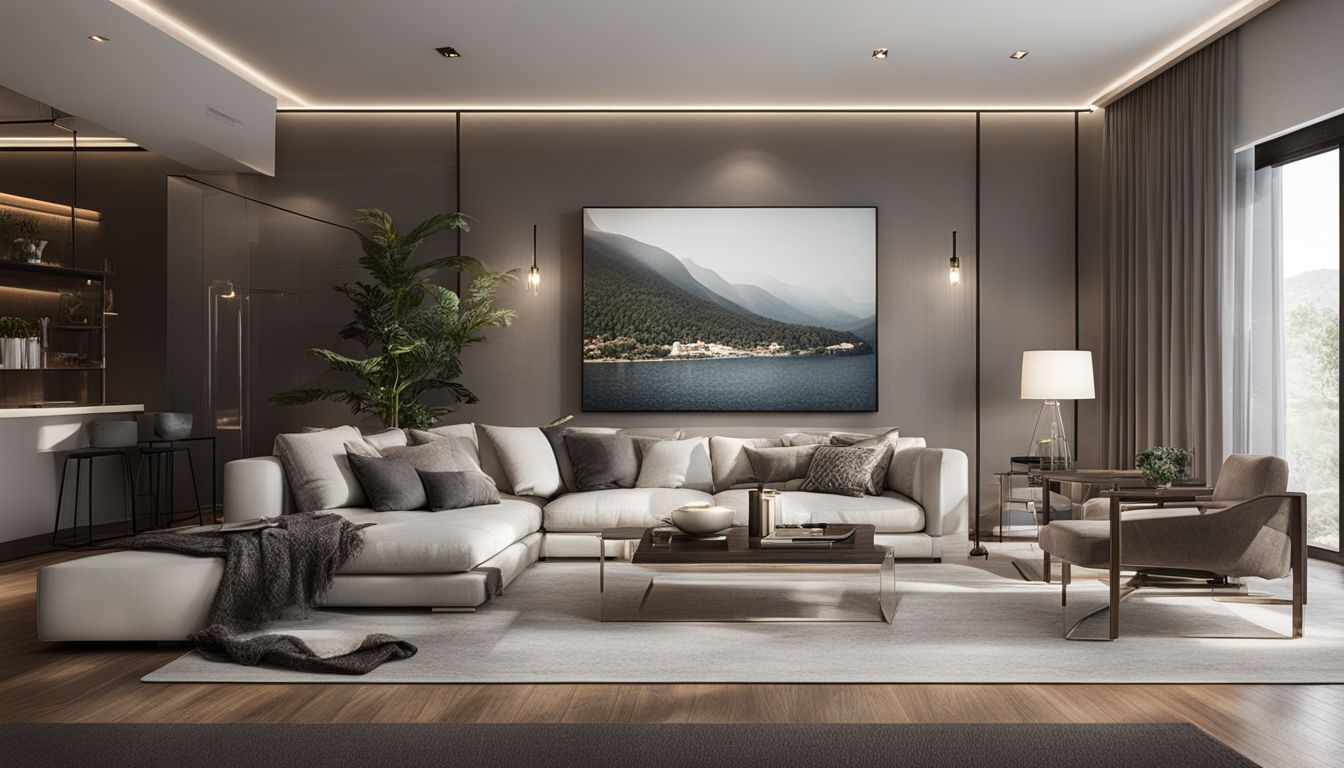
Virtual staging is a technique that enhances the appearance of real estate photos. It involves digitally adding furniture and decor to empty spaces in the images. Here’s how virtual staging works:
- Start with high – quality photos of the vacant property.
- Use specialized software to select and add furniture and accessories.
- Arrange the digital furniture to create an appealing layout.
- Adjust lighting, colors, and shadows for a realistic look.
- Review the staged images for quality and accuracy.
- Deliver the final virtual staged photos to clients.
Tools and software used
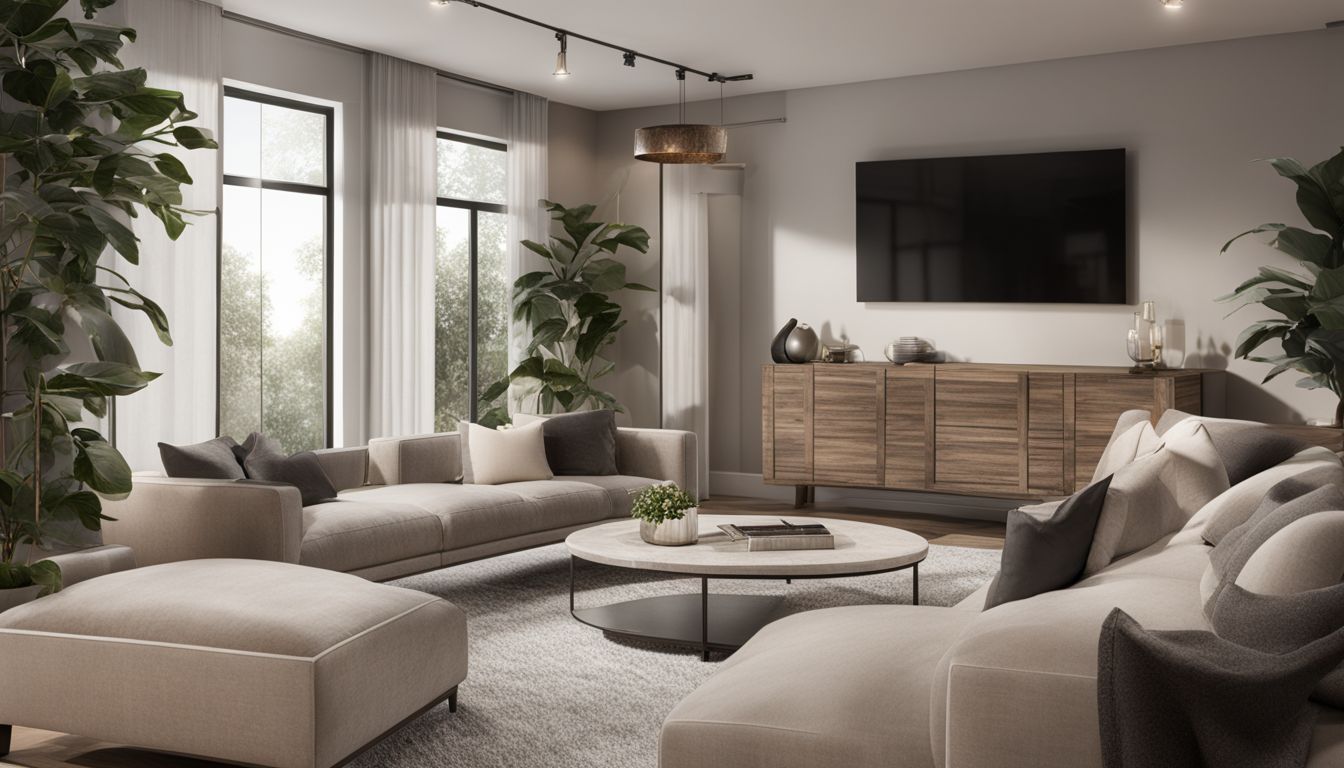
I have found some great tools and software for virtual staging that can help enhance your real estate listings. These tools utilize advanced technology to make empty spaces look furnished and inviting. Here are a few options:
- VisualStager: This app allows you to style rooms yourself by uploading photos and removing unwanted elements. It’s a user-friendly tool that gives you control over the staging process.
- Interior design software: Programs like Home Designer or Chief Architect offer robust features for creating realistic 3D models of spaces and adding furniture and accessories.
- Photo editing technology: Software such as Adobe Photoshop or Lightroom can be used to manipulate images, remove clutter, and add virtual furniture to empty rooms.
The Pros and Cons of Virtual Staging
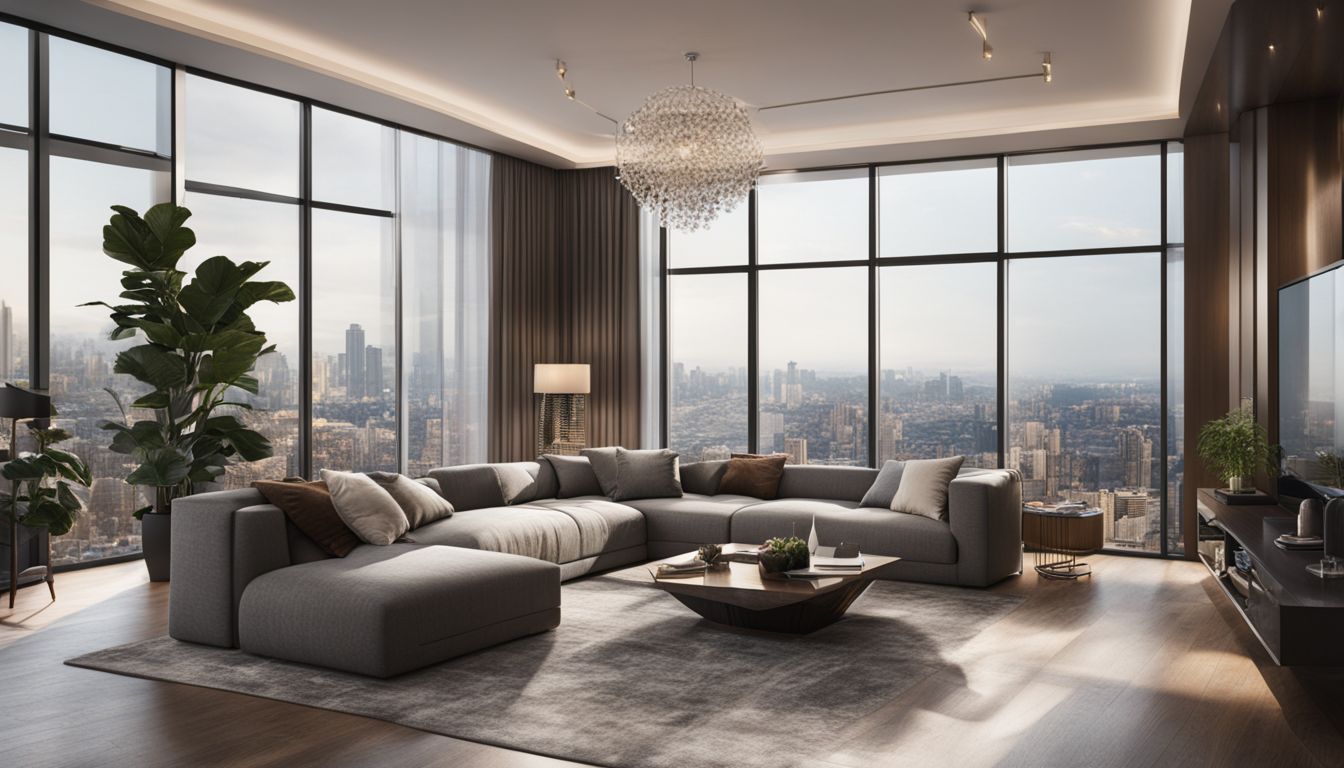
Virtual staging offers numerous advantages for property sales, including cost savings and increased buyer interest. However, it also has its drawbacks that should be considered before implementing this technology in real estate marketing strategies.
Read on to explore the pros and cons of virtual staging and how it can impact your property sales success.
Advantages for property sales
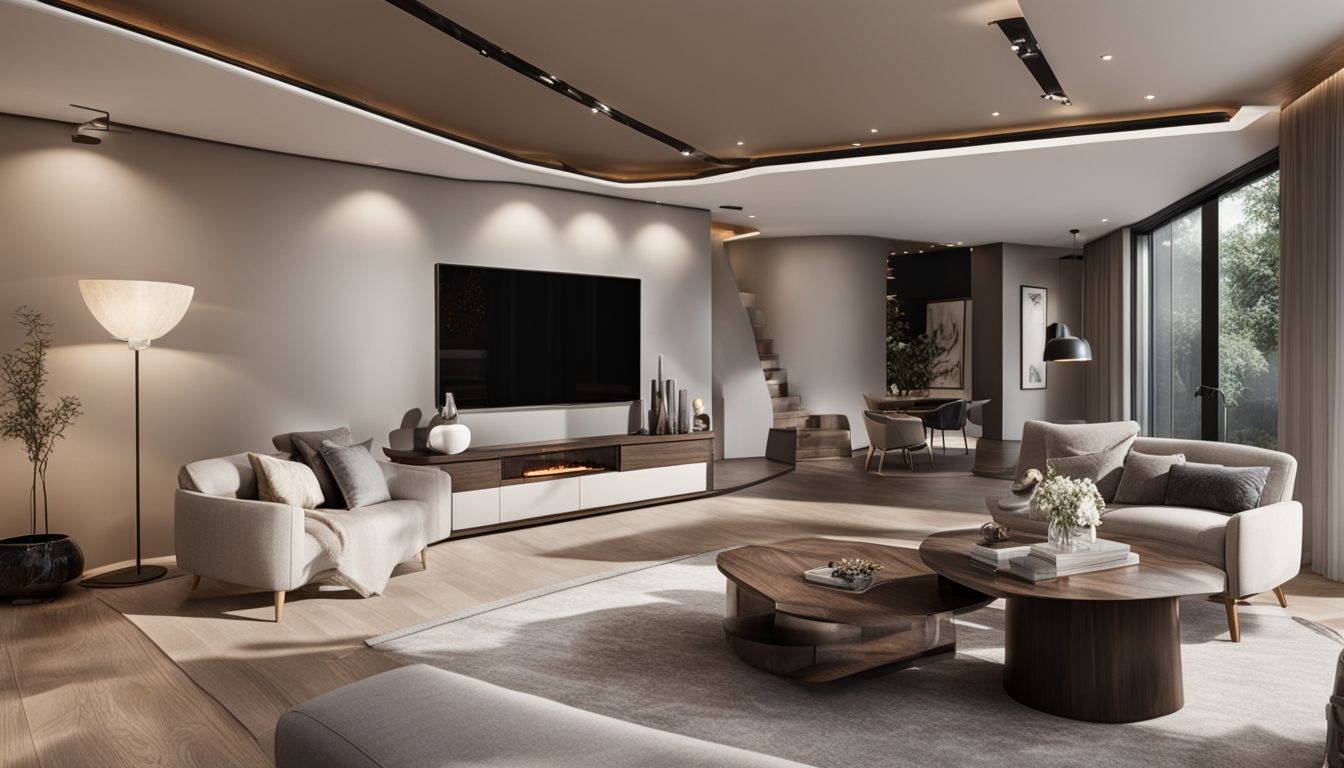
Virtual staging offers numerous advantages for property sales. One major advantage is that it helps to increase buyer interest and attract more potential buyers to a property. By showcasing the home with virtual furniture and decor, it allows buyers to envision themselves living in the space and creates an emotional connection.
This can lead to increased property showings, higher offers, and quicker sales. Additionally, virtual staging eliminates the need for physical staging, which can be time-consuming and costly.
It also allows vacant properties to be presented in their best light without the expense of renting furniture or hiring professional stagers. Overall, virtual staging enhances the overall appeal of a property and improves the chances of a successful sale.
Potential downsides
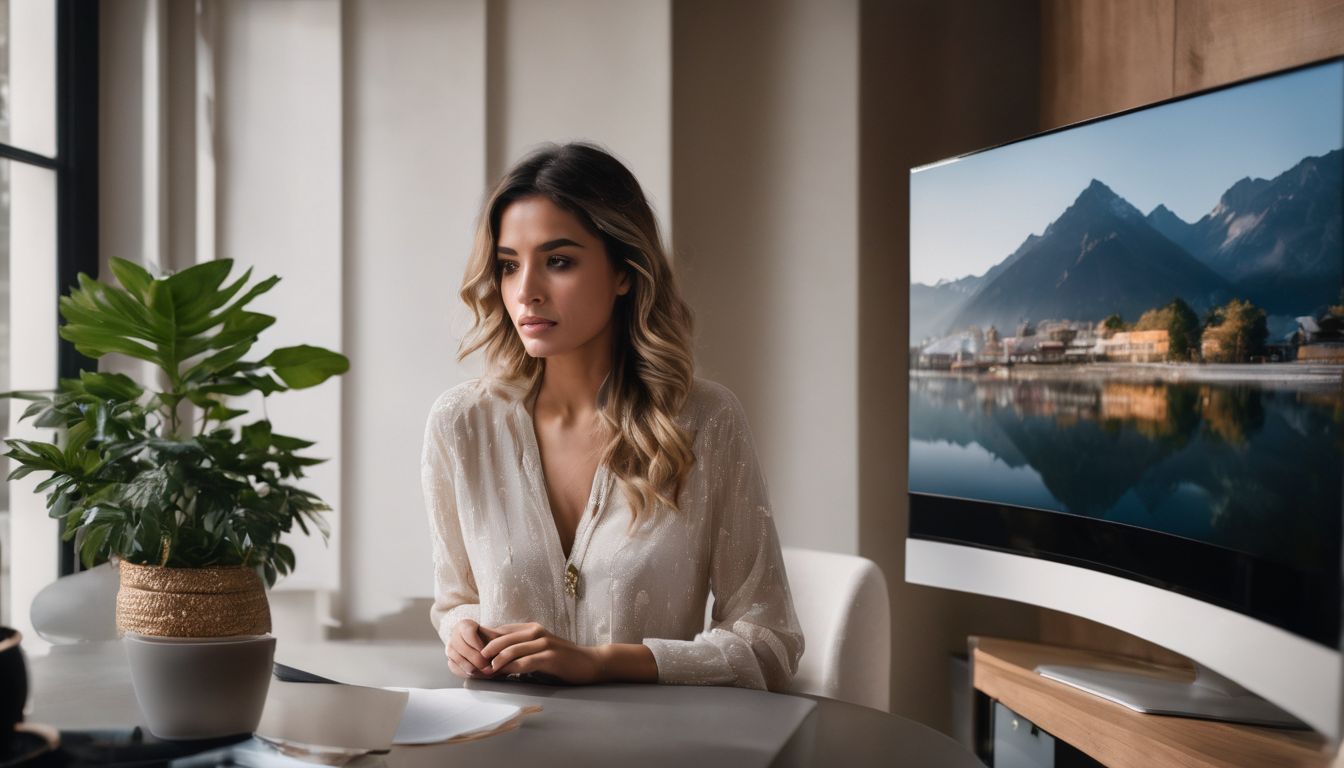
Using virtual staging in real estate can have some potential downsides. One of the main concerns is that it can be deceptive advertising if clear watermarks stating that the images are virtually staged are not used.
This can mislead potential buyers and lead to disappointed expectations when they see the property in person. It may even result in lawsuits due to misrepresentation, which can negatively impact a buyer’s decision to move forward with a contract.
Additionally, there is also a risk of fraudulent misrepresentation and misleading buyers with virtual staging. It’s important for both sellers and buyers to be aware of these potential issues when considering using virtual staging in real estate transactions.
Enhancing the Buyer Experience with Virtual Staging
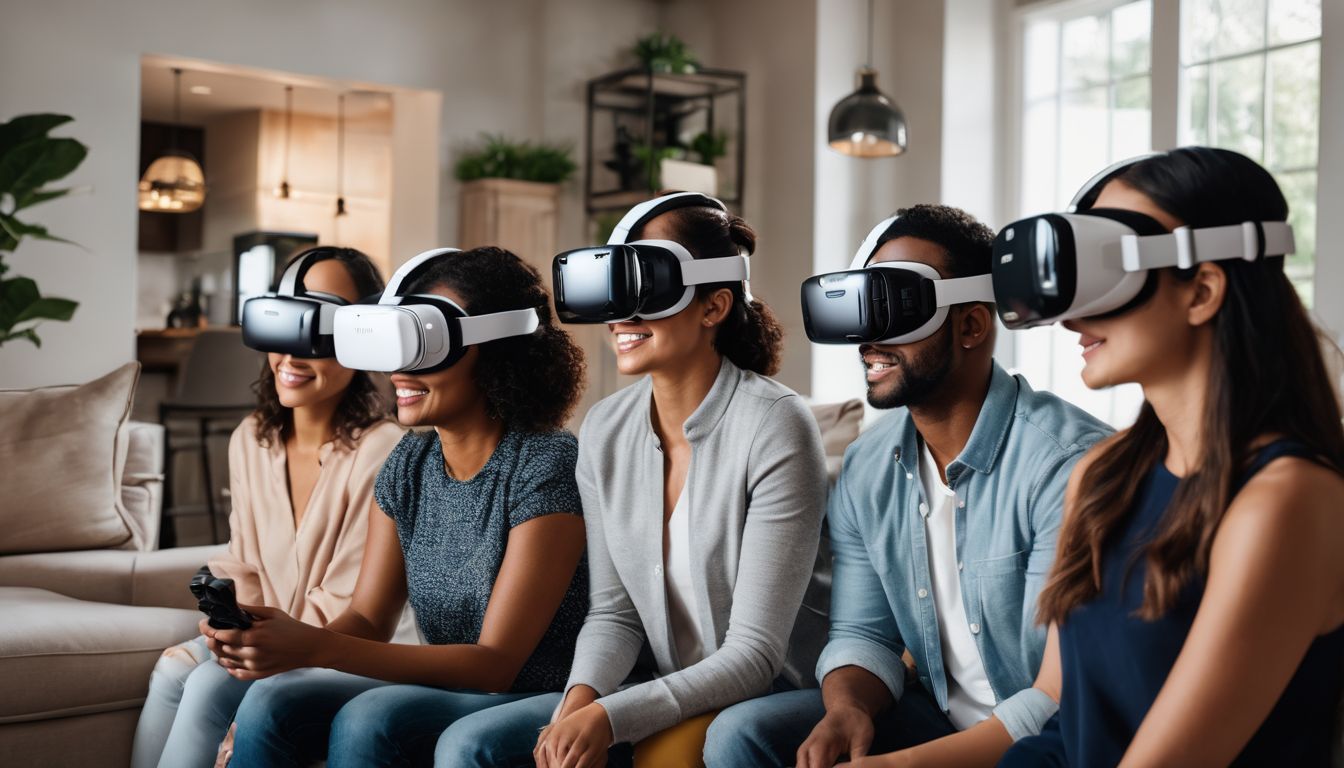
Virtual staging revolutionizes the buyer experience, providing a visually stunning and immersive journey into their future home. But how exactly does it work? Let’s delve deeper to uncover the magic behind virtual staging in real estate.
Read more to discover its incredible benefits, potential downsides, and how it enhances accessibility for remote buyers.
Creating a more appealing listing

When creating a listing for a property, it is important to make it as visually appealing as possible. With virtual staging, you can enhance the buyer experience by showcasing the potential of the property.
By using 3D modeling and interior design choices, you can provide realistic visualizations that can attract more buyers. This cost-effective method not only improves accessibility for remote buyers but also increases interest in the listing.
Virtual staging is becoming a popular alternative to traditional physical staging because it allows you to make your property more visually appealing without breaking the bank.
Showcasing potential of the property
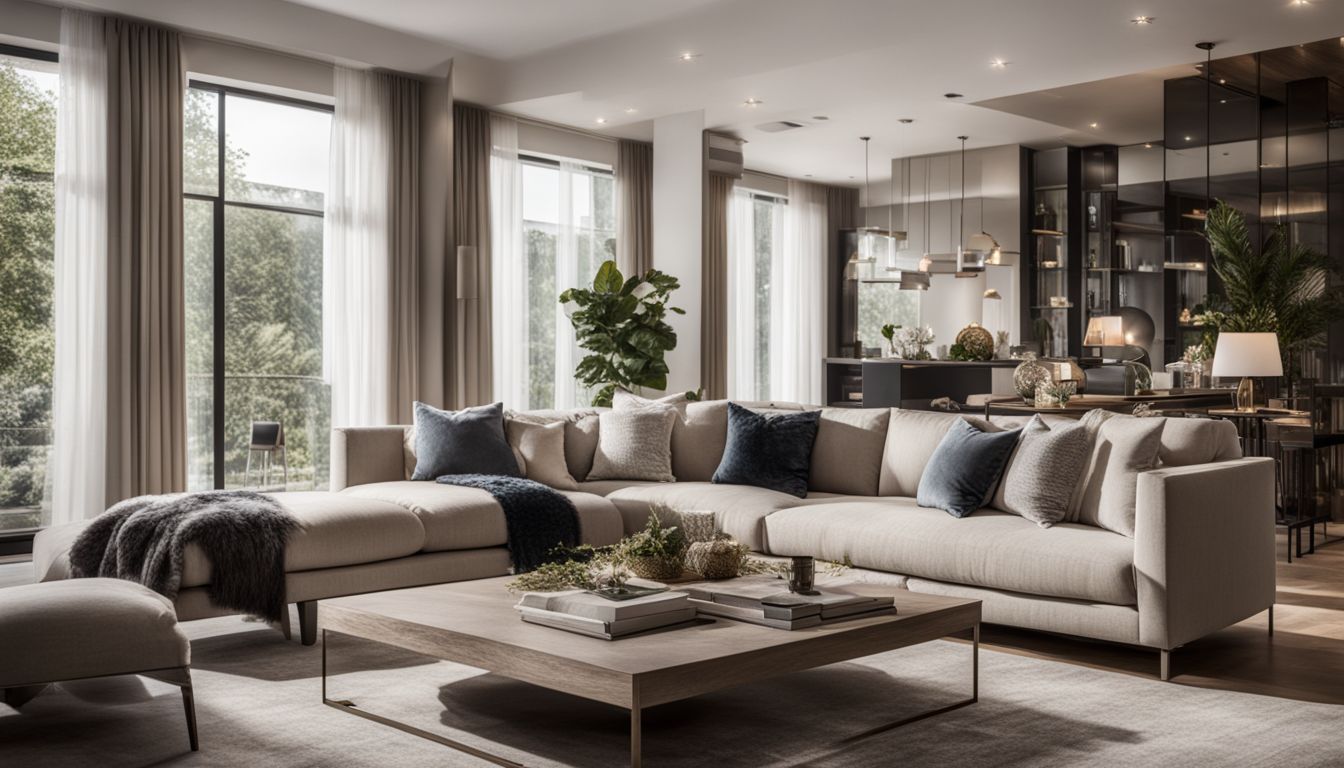
When it comes to showcasing the potential of a property, virtual staging is a game-changer. With this technology, we can create realistic visuals that capture the beauty and charm of a home.
By virtually furnishing and decorating empty spaces, we can help buyers envision themselves living in the property. This not only enhances their experience but also increases the selling price and decreases the time on the market.
Virtual staging allows us to present properties in their best light, attracting more potential buyers and ultimately leading to successful sales. So if you’re looking for an effective way to showcase your property’s potential, virtual staging is definitely worth considering.
Providing a realistic visualization

Virtual staging is a powerful tool that allows potential buyers to see how a property could look like when furnished and decorated. It provides a realistic visualization of the space, helping buyers imagine themselves living in the property.
With virtual staging, empty rooms can be transformed into cozy living spaces or modern offices, showcasing the full potential of the property. This visual representation helps increase buyer interest and engagement, leading to speedier sales.
Whether it’s through 3D modeling or high-quality images, virtual staging creates an immersive experience that enhances the buyer’s understanding of the property’s possibilities. Plus, it also improves accessibility for remote buyers who may not be able to physically visit the location.
Improving accessibility for remote buyers
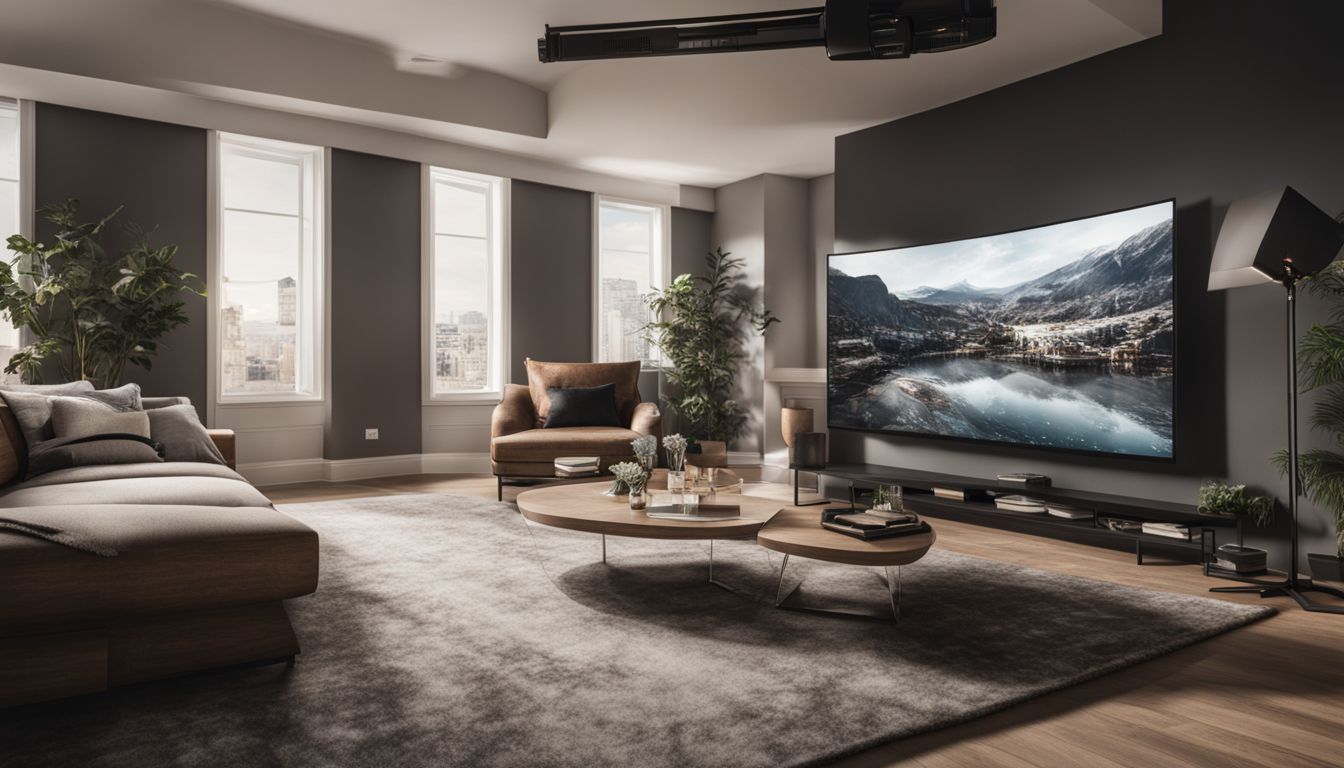
As a remote buyer, I understand the challenges of not being able to physically visit properties. That’s where virtual staging comes in, making it easier for me to explore and experience properties from the comfort of my own home.
With virtual reality technology and online property visualization, I can take digital tours and walkthroughs of homes without actually being there. This not only saves me time and travel expenses but also gives me a realistic sense of what the property feels like.
It’s like having a personalized viewing experience tailored just for me. Virtual staging truly enhances accessibility for remote buyers like myself, allowing us to make informed decisions about our future homes without the need for physical visits.
Conclusion
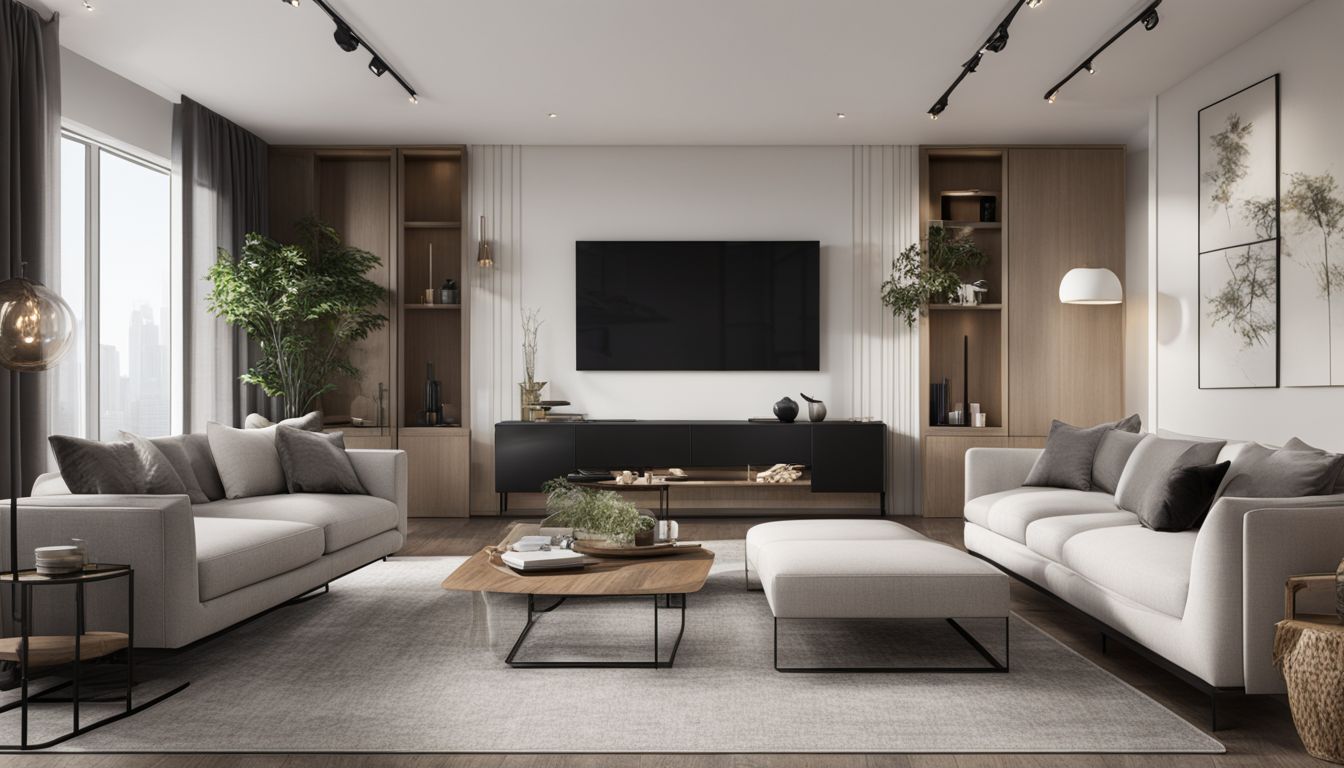
Virtual staging is revolutionizing the real estate industry by offering cost-effective and efficient solutions for property sales. With the help of 3D modeling technology, potential buyers can now visualize their dream homes in a more realistic way.
This not only enhances the buyer experience but also increases the visual appeal and market value of properties. As virtual staging continues to evolve, it is clear that it will play a significant role in the future of real estate.
FAQs
1. What is virtual staging?
Virtual staging is a real estate technology that uses 3D modeling to digitally furnish and decorate empty spaces in property photos, creating an appealing visual representation for buyers.
2. How does virtual staging benefit property sales?
Virtual staging enhances the presentation of a property by showcasing its potential. It helps attract more buyer interest, increases online engagement, and can lead to faster sales at higher prices.
3. Is virtual staging as effective as physical staging?
While physical staging provides a tangible experience, virtual staging offers cost-effective and flexible alternatives. It allows buyers to visualize different design styles, helping them envision the space’s potential.
4. Can virtual staging improve the buyer experience?
Yes, virtual staging improves the buyer experience by providing realistic visuals that help them imagine living in the space. It helps create an emotional connection and aids decision-making during the property search process.
5. Are there any limitations or considerations with virtual staging?
It’s important to note that while virtual staged images are visually appealing, they may not accurately represent the current condition of the property. Buyers should still visit properties in person before making final decisions.
Author: BlogBlitz
BlogBlitz - The Digital Storyteller Hello, fellow explorers of the digital realm! I'm BlogBlitz, your guide to the ever-evolving world of online narratives. With a passion for weaving words and a keen eye for trends, I delve into topics that resonate with the modern netizen. From thought-provoking insights to light-hearted musings, join me on a journey that promises a blitz of knowledge, creativity, and inspiration. When I'm not crafting content, you'll find me exploring nature trails, experimenting with photography, or lost in a gripping novel. Welcome to my corner of the web, where every post is a story waiting to be told.










